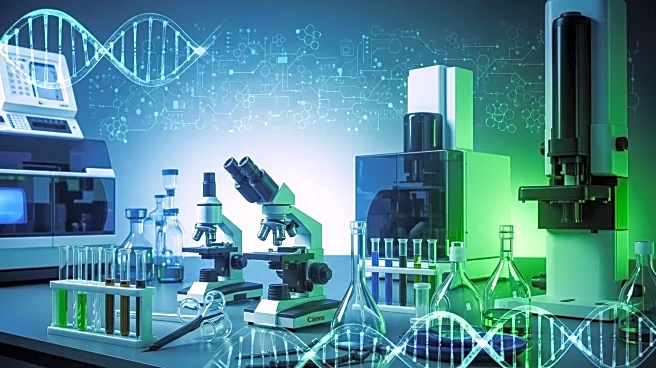What's Happening?
The Massachusetts Biotechnology Council (MassBio) has released a report highlighting a slowdown in the state's life sciences industry, marked by reduced hiring and funding. Despite these challenges, workforce development programs continue to push forward, aiming to connect more employers and employees. The report notes a slight decline in research and development jobs and biomanufacturing positions, alongside increased lab space vacancies and significant cuts in federal NIH funding. However, the industry has not experienced a dramatic loss of jobs, with some companies continuing to grow.
Why It's Important?
The persistence of workforce development programs amid industry challenges is crucial for maintaining the state's position as a leader in life sciences. These programs aim to fill roles in the sector, offering career paths for Boston-area residents, especially those without a four-year college degree. The industry's ability to rebound depends on continued investment in workforce development and strategic policy decisions. The report highlights the importance of reskilling and retaining existing staff, as companies focus on their current workforce.
What's Next?
MassBio projects that Massachusetts remains primed to rebound if investor confidence returns. Workforce development programs are adapting to the competitive hiring environment by reducing class sizes and focusing on skills like résumé development and interview techniques. The state is expected to continue investing in workforce development initiatives to ensure a skilled talent pool is available when hiring picks up.
Beyond the Headlines
The report underscores the need for long-term thinking and smart policy to support the life sciences industry. It highlights the importance of creating value talent and connecting early-career scientists with growth opportunities. The industry's resilience and ability to adapt to challenges will be key to its future success.










